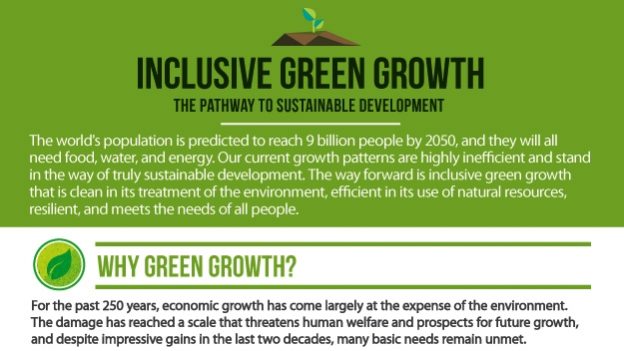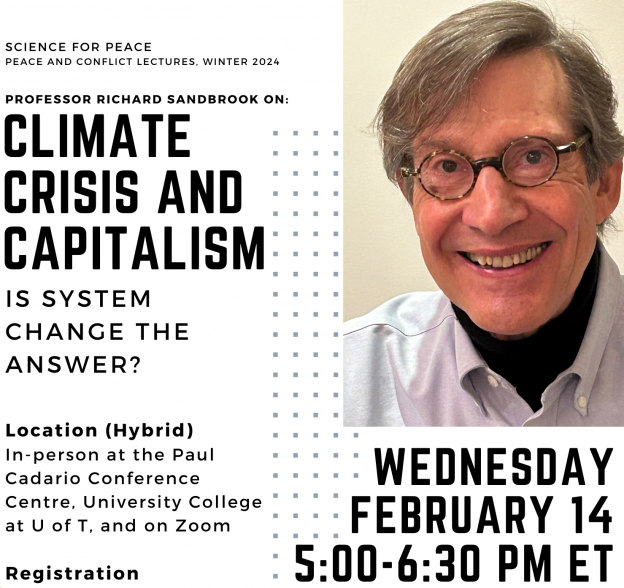When we have dealt with the coronavirus crisis, we need to address the climate emergency. We have learned a lot from handling the pandemic that will help in tackling climate change.
- It is critical to tackle the crisis early, based on the best scientific evidence. Indecisive political leadership pushes the crisis quickly out of control.
- The most vulnerable citizens are the first to die, so ethically we have a responsibility to move fast to protect those who suffer through no fault of their own.
- Social cooperation is critical in overcoming the crisis. Each person plays a part in limiting the common danger. We must all sacrifice cherished pursuits in the short run in order to save ourselves and societal order in the long run.
- Resolution of the crisis requires massive state activism, a willingness to do what is needed to stave off disaster, whether economic or health related. Emergency situations require mobilization of all resources.
- A crisis that is global in scope requires a global organization, such as the World Health Organization, to provide timely information and expert advice and coordinate a global response.
- In an emergency, a lot can be achieved quickly. For example, the sharp contraction in greenhouse gas emissions as a result of the shutdown and social distancing occasioned by the pandemic soon cleared the atmosphere in some of the most polluted cities on earth.
Having learned these lessons, one hopes that recovery from the pandemic-recession would be the ideal time to leap to a green economy. Carbon emissions have fallen, as has consumption, and fracking and oil-sands production are no longer economically viable. The battle against the coronavirus has demonstrated the importance of public goods such as health services and unemployment benefits and the centrality of collective action in an emergency. To reverse the economic slump, create good jobs and decarbonize the economy, we could massively invest in green energy and green infrastructure.
We could do so. It makes good sense to do so. Many people might now be willing to support such measures. But the problem is that global heating is primarily a political problem. Even with existing technologies, let alone those that will be available within five years, we could attain a carbon-neutral economy in a decade or two. The 2017 book Drawdown: The Most Comprehensive Plan Ever Proposed to Reverse Global Warming. presents a hundred ranked solutions to global warming, drawing on the work of about 200 scientists. Climate activists and scientists have reason and evidence-based projections on their side, but power structures and the culture of possessive individualism buttress the existing carbon-intensive system.
The problem is not that we don’t know what to do, but that we don’t do it. What we should do is implement a Green New Deal that combines socioeconomic transformation with ecological protection. This is rapidly becoming the defining position of the broad left, as ably presented by Naomi Klein in a recent book. But achieving such a goal is fraught with political dangers and obstacles. We need to reckon with these now in order to avoid the shoals. The passage is inevitably perilous.
It is a widely believed, at least by those under 40, that only a mass movement creating a lot of disruption can prevail on governments to take climate change seriously. Few readers of The Bullet would disagree. And this is an era of mass protests, many successful. In 2019, these protests occurred on every continent and across 114 countries, in the global south and north. But forming a mass movement, though a difficult challenge in itself, is just the beginning. In a turbulent and polarized era, spontaneity must give way to strategic planning.
Recently, the climate movement has gained considerable momentum.The ramping up of campaigns to divest from carbon stocks, the climate strikes organized by school students throughout the world, the worldwide protests of Extinction Rebellion and other groups. the flurry of dire reports on climatic trends – all these events have brought climate issues to the forefront in rich countries. In the US, there is evidence of a cultural shift that has fossil fuel companies running scared. And media outlets are also reporting more and more urgently on climate issues, in some cases (for example UK’s The Guardian) adopting the phrases climate crisis or climate emergency in reportage. We are making progress. But much more is needed.
Green New Deals
Reversing global warming at this late stage requires deep changes in production, distribution and consumption. You don’t need to be a socialist to accept this statement; it is common sense. If we had seriously responded two or three decades ago, when the science of climate change was already established, more minor actions might have sufficed. A robust and progressive carbon tax, if instituted then, might have been enough. But remediation at this point demands more radical measures.
Consider the magnitude of the challenge. The “safe” concentration of CO2 in the atmosphere is 350 ppm. In February, readings recorded 413 and 414 ppm. According to NASA, this concentration is higher than it’s been in 3 million years. Although there is a lag between high concentrations and climate heating, that heating will come even if we achieve a carbon neutral economy. The challenge is not just net-zero emissions but drawing carbon out of the atmosphere. And to hold warming to under 2°C (the maximum tolerable change), according to the well-known estimate of the Intergovernmental Panel on Climate Change, requires cutting carbon emissions in half in a decade and attaining net-zero by 2050. And that in a time when emissions were rising (until the coronavirus-induced recession).
This urgency has given rise to the advocacy of a Green New Deal (GND), Green Marshall Plans, and Just Transitions. The Leap Manifesto, the forerunner of these programs in Canada, contained most of the elements. They included a transition to 100% renewable energy by 2050, the building of a more just society in the process, the enactment of higher, and new forms of, taxes, and a grassroots movement to back the needed changes and to deepen democracy.
Although Green New Deals (the most popular formulation) vary in their ambition from one iteration to another, the logic is the same. Ecological transformation cannot be achieved without deep economic and social changes, both as an end (to cut emissions) and as a means (to win popular support). The transition to a net-zero carbon economy must be just and systemic to be effective.
Famously or infamously, the GND sponsored by Alexandria Ocasio-Cortez and Ed Markey in the form of a resolution in the US House of Representatives in 2019, follows this logic. Denounced as a socialist plot, the plan is closer to a Rooseveltian New Deal for the 21st century. It calls for a “10-year national mobilization” to achieve 100% renewable energy, giant investments in infrastructure and a carbon-free economy, and jobs for all who want to work. Accompanying the transition are measures that are mainstream in Western welfare states: universal health care, free higher education, affordable housing, enhanced labour rights, a job guarantee, and remedies for racism. Enforcement of anti-trust laws would, if successful, weaken the economic and political power of oligopolies. We can argue about the degree of systemic change that is needed. Any effective plan, however, must garner support through a vision of a better life, not just fear.
Conservatives, especially right-wing populists, have become climate-deniers, partly on the grounds that combatting climate change is a socialist Trojan horse. They are certainly right that the GND is a progressive project, but whether it is necessarily a socialist project is debatable. It depends partly on one’s definition of socialism. For the sake of unity in a diverse movement, that debate is one we should avoid.
Regardless of one’s position, we can agree the stakes are high. Powerful interests will lose out, and they will resist.
Challenging Plutocracy
The deep economic and tax changes required to drastically cut emissions will saddle major corporations and wealthy individuals with major losses in assets, income and power. As reported in the Globe & Mail on 12 Feb 2020, “Canada’s banking regulator says the financial sector should assume the transition to a low-carbon economy will be ‘sharply negative’”. A few brief illustrations suggest why.
- Phasing out of coal, oil and gas fields. Coal fields would need to be shuttered quickly, but oil and gas fields would phase out as demand declines. One expert estimates that holding global warming to 2°C would strand more than half of the assets of fossil fuel companies, while the 1.5°C target would strand 80 percent. The first oil and gas fields to close would be the dirtiest and most costly to operate – including Alberta’s oil sands. The consequences would be mammoth losses to shareholders and job-holders (the latter replaced by green jobs) and defaults on loans.
- Reducing the impact of the modern food system. This system is the biggest single source of global warming: with its 60 billion livestock to be fed and processed, with industrial farming using copious quantities of chemicals and sucking the carbon out of the soil, and with industrial fishing vessels denuding fish stocks. Twelve of Drawdown’s top 30 solutions to global warming involve the food industry and transitions to organic, regenerative agriculture. But agribusiness, factory fishers, petrochemical producers, and suppliers will resist such moves.
- Fall-out for the financial sector. The financial sector has seen its power and profits grow during the past two decades with the lifting of controls on cross-border financial transactions and domestic banking. Investment banks are heavily invested in fossil fuels. Bloomberg financial data reveals that they provided financing of more than $US2.66 trillion to the fossil fuel industry since the Paris Agreement (2016-2019). A GND would involve major losses for the banking sector, as well as the likelihood that banks would be subject to anti-monopoly legislation. New investment opportunities of investing in the green economy would mitigate these losses, however.
These threats to the profitability and even survival of major corporations add up to a major challenge to plutocracy.
“Plutocracy” is a term now widely used, in this neoliberal era, to describe the fusing of economic with political power in Western liberal democracies . The result is that economic and other policies are skewed to the advantage of the top one percent. This idea is so widely accepted that even economists, mainly the maverick variety such as Paul Krugman or Branko Milanovic, employ the concept.
Its applicability, however, should not be restricted to degraded liberal democracies such as the US and the UK, but extended to authoritarian cases such as Russia and China. In the latter cases, political power has encroached on economic power, a reversal of the process in the West. But the outcome is similar: a power structure highly resistant to the major changes proposed by Green New Deals. True, some investors are attracted to the investment opportunities offered by the green economy. However, the threat to key industries may cast climate activists not as benign tree-huggers, but as security threats.
Even a cursory Google search uncovers disconcerting evidence that security services view climate activists as threats to national security. In the United Kingdom, an anti-extremism briefing issued by the government to all schools and other institutions in late 2019 included environmental groups and anti-racism organizations along with neo-Nazi and Islamist groups in the list of suspects. Greenpeace, Extinction Rebellion, Sea Shepherd, Stop the Badger Cull, PETA and a vegan organization – all respectably non-violent in tactics – appeared. Readers were advised to be aware of the symbols employed by extremist groups and report any concerns to counter-terrorism police.
In Canada, documents released under Freedom of Information Act revealed that, during the era of Conservative government under Stephen Harper, the two main counter-terrorism agencies regarded environmental and indigenous activists as extremists. Security and police services regularly monitored these activists. Security agencies regarded protests and opposition to Canada’s resource-based economy, especially oil and gas, as “national-security threats” (Guardian, Feb 14, 2013). The National Observer, an award-winning digital newspaper specializing in human-rights issues, reported in 2016 and 2017 that surveillance of environmental activists (which includes indigenous activists) was undertaken by the RCMP (the national police force), Canadian Security and Intelligence Service, provincial police forces and, in some large cities, municipal police forces. Jeffrey Monaghan, a Carleton University criminologist studying espionage, Identifies a “petro-security apparatus” linking security agencies to energy corporations in Canada. This collaboration flows from the alleged threat to “critical infrastructure” posed by environmental activists. So the warning signs are there.
It’s a safe bet that climate activists, albeit engaged in legitimate non-violent action, are under surveillance in plutocracies both western and eastern. And that’s in a time of relative calm. Perhaps that’s just par for the course in what has been dubbed “surveillance capitalism.” What is troubling is that the means of surveillance –facial recognition and tracking of individuals via their cell phones – is now far advanced. Should it come to a crackdown, security agencies will already know who is involved in climate activism and where they live. Civil disobedience will be seen as extremism.
Climate and the Multi-dimensional Crisis of Neoliberalism
What makes this outcome probable is that the climate crisis is not a stand-alone crisis; it is part of a multi-dimensional crisis of neoliberalism. This unbridled variety of capitalism has fostered problems it is unable to solve. That of course is one reason why the Green New Deals normally advocate social and economic, in addition to ecological, transformation. The Green New Deal is an alternative to neoliberalism, though not necessarily to capitalism. It is a reasonable and just response. That matters little, however, in a context increasingly characterized by dislocation, insecurity and polarization. The multidimensional crisis threatens disorder and therefore property rights. The deeper the disorder and polarization, the more likely a right-wing reaction becomes.
We might describe the simultaneous crises in various ways. They afflict the countries of the global south even more than the north, but here I’m narrowing my attention to the latter. In the West in particular, three trends are asserting themselves:
- global heating and its deleterious effects;
- the robotics revolution that, in the short run at least, augments precarious employment and inequality;
- the decline of democratic institutions and rise of authoritarian tendencies, especially right-wing populism.
These trends in tandem produce a treacherous environment.
Consider the robotics revolution. The significance of this technological shift is best understood in the context of recent history.
Neither digitalization nor the more recent “sharing” economy lived up to its early promise of ushering in shared prosperity or more flexible working arrangements. Instead, the neoliberal age has seen inequality and insecurity rise to new levels. This story is well known. The gig economy with its precarious and poorly paid jobs has expanded – to encompass one-third of all jobs in the US, according to some estimates. Millennials in particular have had trouble finding good jobs, as well as being saddled with high debts from post-secondary education. Moreover, the economic collapse of 2008 dealt a heavy blow to many in the middle and working classes. Their recovery took years, and it is now threatened by the recession induced by the coronavirus pandemic in 2020.
The “fourth industrial revolution” of robotics is wreaking further insecurity. The higher productivity wrought by artificial intelligence could lead to a greener, more egalitarian future where available work is shared and working hours shrink. But that will not happen automatically, especially in societies already characterized by inequality, precarious employment and weak democracy.
The employment impact during the next 30 years is likely to be major. Artificial intelligence, as it well understood, displaces workers not just in routine activities in the industrial and service sectors, but in professional occupations as well. A 2017 report by the McKinsey Global Institute estimates that just over half of the waged tasks in 2017 could be done by robots and computers by 2050. In the next decade, 14 percent of the global workforce will lose their jobs according to the institute’s mid-way estimate. The job loss in industrial countries such as the US, Japan and China are much higher than the world average. These estimates, of course, simply tell us what could happen, given technological developments, not what will happen. Political trade-offs and union power, where it exists, may intercede to save jobs. Nonetheless, a lot of people in good jobs as well as bad are going to be out of work.
Economists are confident that the economy will develop new jobs to replace those that are lost: in the longer run. There will be a lag. And will those who lose their jobs be qualified for the tech-savvy, knowledge-based jobs that do emerge? Perhaps – if the governments were willing to invest heavily in retraining people for the new economy. However, we can’t expect that expensive path to be taken in plutocracies responsive to the demands for the wealthy for lower taxes. We are more likely to see, in many Western countries, further marginalization and inequality.
You don’t need to be a rocket scientist, or even a political scientist, to foresee the political dynamics of the unfolding crisis of neoliberalism. Social stress is rising. A growing sense of marginalization and precarity is likely to produce higher anger and resentment, especially at times of recession.
Simultaneously – unless we respond swiftly – global heating will precipitate extreme weather events that wreak widespread damage. More extensive heat waves, floods, droughts, fresh-water shortages, inundations of coastal cities and islands, falls in agricultural and fishing yields and declines in human health are rendering certain regions uninhabitable while inducing panic.
The consequent population movements add another element of instability. The global south, suffering a more extreme climatic shift than in the north, will witness a growing stream of climate migrants to join the existing refugees displaced by war and disorder. Estimates of the numbers of climate migrants vary, but the most frequent estimate is 150-200 million by 2050. This total includes temporary as well as permanent migrants, and those who are internally displaced as well as cross-border migrants. At the minimum, several millions will join political refugees in heading for sanctuary in Europe, North America and Australia in recurrent waves.
These migrants are the victims of a climatic shift for which they bear virtually no responsibility. The rich countries, having generated most of the carbon in the atmosphere, have an ethical duty to be generous in their reception of these migrants. And yet…. The movement of just a million migrants to Europe in 2015-2016 amplified support for right-wing populist parties throughout the continent. The new waves are likely to be far more numerous.
The political danger is clear. With threats to property posed by mass movements and the radical policies of the Green New Deal, concentrated economic power may ally with reactionary political forces. Conservatives feeling under threat from social movements and generalized anxiety will be tempted to turn to reactionary political forces as a means of re-establishing order and safeguarding power and property (as in the 1930s). Hitherto climate-deniers on the right may see in the unfolding of climate change an unparalleled opportunity: to appeal to the ethno-nation, casting migrants and immigrants and their elite enablers as the enemy.
The situation is the more dangerous owing to the decline of democratic institutions. Trust in government has declined during the past two decades world-wide according to numerous surveys. The Edelman Trust Barometer 2020, which surveyed population in 28 countries in late 2019, concluded that a “global trust crisis is deepening.” More than half the population of developed liberal democracies felt that democracy is losing its effectiveness and 56 percent believed that capitalism does more harm than good. The far right thrives on declining trust, fear and lies.
Fortress America or Fortress Europe is the opposite of the Green New Deal. It means restricting liberal freedoms, closing borders, blaming “aliens”, repressing dissent and regulating national economies while safeguarding existing property rights and ethnic and class hierarchies. It involves abandoning the global south to its fate and reversing globalization. Fascism has no viable answer to the climate crisis or the socioeconomic crisis except repression.
Our future could indeed be dark, but our task is to ensure that what could happen, doesn’t happen. Within limits, we can make history.
An Alternative Scenario
Reversing climate change is a hard sell in societies where right-wing populists have gained a following among the less-educated and more rural elements of the population. Climate change is as much a threat to these elements as to cosmopolitan elites, but the former do not see it that way. Climate change has become entangled in political polarization. Conservative populists have cast climate change as a hoax allowing governing elites to impose new taxes, expand state intervention and welcome new waves of migrants. The populist message resonates with those who feel left behind. Inequality, the exodus of good jobs, and a loss of status in multicultural societies generate resentment, anger and mistrust. Populists have shaped this anger; the left has not.
How then can the climate movement break through the class division? How can they dispel the mistrust to expand their support beyond affluent urbanites and the more highly educated? The only feasible strategy is one that attacks inequality and precarity together with global warming. hence the importance of the Green New Deal. It envisions a more desirable and feasible future than that offered by nationalist populists.
The GND provides a vision of universal well-being to counter the hateful message of ethno-nationalism. We – all the people – are vulnerable to climate change, and thus must work in unison. We have a common enemy threatening our future: an economic system that is out of control. We can win the struggle by making a just transition to a net-zero carbon economy through measures that also create an egalitarian, secure and democratic society. That story-line may not work, but it’s the best available.
But can we forge a broad coalition of progressive forces animated by this vision? Unity and coherence are key. Civil society encompasses a variety of social movements, each with its own agenda, whether social, economic, or ecological. Furthermore, the movements operate at different levels. Some are local, some regional or national, and others transnational. Consequently, there is a cacophony of voices: how do we make them into a choir, singing the same hymn? Presumably, a political party tries to organize and channel the demands. Which party, however?
That raises the issue of the political hue of the GND. Naomi Klein contends, and I agree, that the climate movement is inherently a movement of the left. It seeks social and economic change to achieve its climate objectives. But what left? The fact is that the left has never been good at creating unity (unlike the right); some factions seem more engaged in attacking back-sliders in their own camp than engaging with the real enemy. Achieving an accord is a major challenge.
Can this change, as the threat from the far right escalates? The coalition, to be successful, would surely need to unite most climate activists with left liberals, human-rights defenders, trade unions, social democrats, socialists, indigenous activists, and identity-based groups seeking justice. Perhaps the most fruitful coalition-building strategy is to articulate a powerful vision but offer a program that remains vague in details about the future sustainable society.
But we can all agree that, in means as well as ends, the Green New Deal is a democratic project. Democracy, unfortunately, does not now favour the project of halting global heating. When given the opportunity, electorates throughout the world have voted against, or even rebelled against (as with the gilets jaunes in France), carbon taxes and other inconvenient climate measures. Political polarization and widespread alienation are having this effect. So democracy is a gamble, but a necessary one. Only if the Green New Deal is popular will it succeed. Yet if the polarization deepens, the struggle will ultimately be waged between a democratic and egalitarian new deal and an increasingly authoritarian, ultra-nationalist populism.
Finally, we need to counter ethno-nationalism with progressive internationalism. The fight for a Green new Deal cannot be exclusively fought at the national level. Climate change is a global issue and requires global cooperation. I cannot broach the many issues surrounding a progressive international order here. But one contentious issue – “open borders” as part of a just transition – does require comment.
Presumptive admission for all climate migrants is ethically correct . The emissions that have caused the crisis in the global south have emanated largely from the global north (in addition to China and India more recently). But presumptive admission would likely be politically disastrous. It would provide the Far Right with an issue it could exploit.
If open borders is a policy that is right in principle but disastrous in practice, one is obliged to discuss other options. Winning power or influence is crucial for our success. Certainly, we must support a generous immigration policy. But that will not be enough to fulfill our moral obligation. Major transfers from the rich countries to the global south for mitigating climate change are critical. The Paris Agreement obliges rich countries to make financial and other transfers, but governments have shirked their obligations. A Green New Deal must include provisions for a generous immigration policy (though not presumptive admission for all), together with major transfers of green technologies and financial resources to the beleaguered populations of the global south. Even those pragmatic measures, however, may not be enough to stem the popular appeal of Fortress Europe and Fortress America.
The climate movement, with its allies, is called upon to make history at a critical juncture. The threat posed by climate change is more complex and, in the longer term, more deadly than that posed by the corona virus. But the pandemic has shown what can be done in an emergency. Can we harness the lessons we’ve learned? Whether we succeed cannot be foretold, and a livable and just world hangs in the balance.




